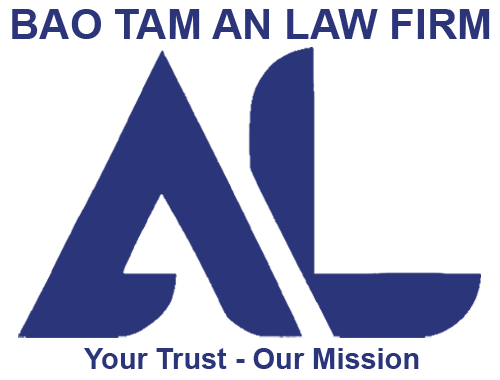Mergers & Acquisitions: Legal Due Diligence Checklist in Vietnam
Mergers and acquisitions (M&A) are critical strategies for growth, allowing businesses to expand their market reach, leverage new technologies, and achieve economies of scale. However, the success of M&A transactions heavily relies on thorough legal due diligence, which helps to identify potential risks and liabilities associated with the target company. In Vietnam’s evolving business landscape, conducting a comprehensive legal due diligence process is crucial for ensuring compliance and protecting the interests of both parties involved. This article provides a detailed legal due diligence checklist for M&A transactions in Vietnam, outlining essential areas of focus for companies considering an acquisition.
What is Due Diligence?
Due diligence is the investigatory process undertaken by a buyer (or its legal and financial advisors) to assess a target company’s financial, operational, legal, and business conditions prior to committing to a transaction. The goals of due diligence include:
- Evaluating the Target’s Value: Ensuring that the purchase price reflects the true value of the business based on assets, liabilities, and potential risks.
- Identifying Risks: Detecting legal, financial, operational, and reputational risks associated with the target company that could impact the transaction.
- Ensuring Compliance: Verifying adherence to applicable laws and regulations, reducing the likelihood of post-acquisition issues.
Key Areas of Focus in M&A Due Diligence
1. Corporate Structure and Governance
Understanding the corporate structure and governance of the target company is critical:
- Corporate Documents: Review the target’s articles of association, bylaws, and corporate governance documents. Ensure that the company is legally registered in Vietnam and operates under the appropriate licenses.
- Ownership Structure: Confirm the identity of shareholders and the distribution of shares, including any equity held by foreign investors, and assess compliance with foreign ownership regulations.
- Board Meeting Minutes: Examine the records of board meetings to gain insights into decision-making processes and identify any unresolved governance issues.
2. Financial Records
The financial health of a company is a key consideration for investors:
- Financial Statements: Review audited financial statements for the past three to five years, including balance sheets, income statements, and cash flow statements. Look for trends, inconsistencies, and any signs of financial distress.
- Tax Compliance: Evaluate the target’s tax obligations, compliance with Vietnamese tax laws, and any pending tax liabilities or audits. Understanding potential tax exposure is critical for assessing risks.
- Outstanding Debts: Assess any loans, credit facilities, or financial obligations and understand how these impact the company’s value.

3. Contracts and Agreements
Contracts form the backbone of a business’s operations. Key areas to review include:
- Material Contracts: Examine contracts with suppliers, distributors, customers, and service providers. This helps in understanding obligations, rights, and any potential liabilities.
- Employment Contracts: Evaluate employment agreements to confirm compliance with labor laws and assess workforce stability. Look for any clauses that may affect operations post-acquisition, such as non-compete agreements.
- Leases: Inspect lease agreements related to any property or equipment rentals. This includes terms of renewal, conditions for termination, and any outstanding obligations.
4. Intellectual Property Rights
Intellectual property (IP) plays a critical role in a company’s competitive advantage. During due diligence, consider the following:
- IP Portfolio: Review the target company’s trademarks, patents, copyrights, and trade secrets to confirm ownership and protection status. Ensure that all IP assets are registered and that there are no ongoing infringements.
- Licensing Agreements: Examine existing licensing agreements and assess any obligations or restrictions that may affect future operations.
- Compliance with IP Laws: Ensure that the target complies with local IP laws and has implemented necessary protections against potential infringements.
5. Regulatory Compliance
Ensuring compliance with local laws and regulations is critical for a successful acquisition:
- Environmental Regulations: Review compliance with environmental laws, particularly if the target operates in industries that impact the environment. Investigate any past breaches or ongoing regulatory issues.
- Sector-Specific Regulations: Depending on the industry, assess compliance with relevant sector-specific laws (e.g., health and safety standards, consumer protection).
6. Labor and Employment Issues
Understanding the labor landscape and employment relationships of the target company is essential:
- Workforce Analysis: Evaluate the size and composition of the workforce, including employee contracts, benefits, and any labor disputes. Understanding employee relations can inform management strategies post-acquisition.
- Compliance with Labor Laws: Ensure that the target complies with Vietnamese labor regulations, including wage standards, working hours, and employee rights.

7. Pending Litigation and Risks
Identifying ongoing or potential litigation is vital to mitigate risks:
- Review of Legal Proceedings: Investigate any current or past legal disputes involving the target company, assessing their potential impact on the acquisition.
- Risk Assessment: Evaluate the risks associated with these disputes, including financial liabilities and reputational concerns.
8. Compliance History
Examine the target’s compliance history in relation to previous regulations and requirements:
- Regulatory Audits: Check for past audits conducted by regulatory agencies and the outcomes of those audits. This can provide insight into the company’s adherence to laws and regulations.
- Compliance Breaches: Identify any historical compliance breaches and assess their impact on the business’s operations and reputation.
Engaging M&A Lawyers for Due Diligence
Engaging experienced M&A lawyers is crucial for navigating the due diligence process effectively. Here are the benefits of hiring legal counsel:
1. Expertise in M&A Law
M&A lawyers have specialized knowledge of Vietnamese laws and regulations relevant to business transactions, providing guidance throughout the due diligence process.

2. Comprehensive Legal Advice
Legal professionals can help assess the risks associated with the acquisition and advise on the necessary steps to mitigate those risks, ensuring that the buyer makes informed decisions.
3. Document Preparation and Review
Attorneys assist in preparing and reviewing all documents related to the acquisition, ensuring that terms are legally sound and that the interests of all parties are protected.
4. Representation in Negotiations
M&A lawyers can represent clients in negotiations, advocating for favorable terms and ensuring that agreements are aligned with the buyer’s objectives.
5. Post-Acquisition Support
Engaging legal counsel doesn’t end with the acquisition. Lawyers can assist in post-acquisition integration, ensuring compliance with legal obligations and helping to manage transition processes.
Conclusion
Conducting thorough legal due diligence is essential for any business considering mergers or acquisitions in Vietnam. By understanding the various aspects of the due diligence process and engaging skilled M&A lawyers, businesses can effectively identify potential risks and make informed decisions that safeguard their interests. These actions not only help in mitigating liabilities but also contribute to a successful acquisition process that aligns with the strategic goals of the company. As Vietnam continues to grow as a hub for investment, proactive legal strategies will be critical to navigating this dynamic landscape and unlocking opportunities for sustainable business success.
